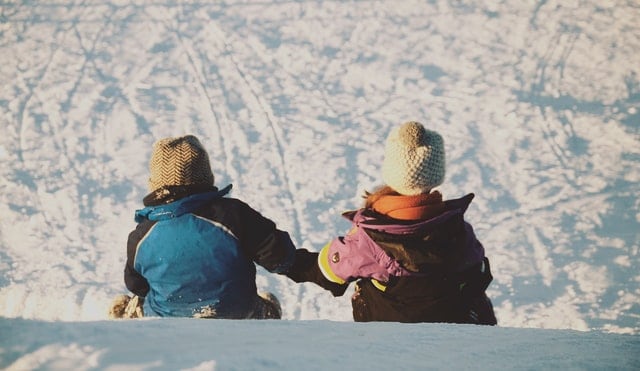The effects of social isolation on children remain a complex issue. There are a variety of situations that can lead to a child feeling isolated. The impact of the global pandemic has made this all the more visible. The pandemic has increased the number of children who experience isolation — many for the first time in their lives.
How do you identify feelings of social isolation in your children? This article will examine the symptoms, and causes of social isolation to help you better understand the issue and how to reduce its effects.
What is Social Isolation?
Social isolation is when someone feels excluded from others and experiences loneliness (WHO).
Effects of Social Isolation on a Child

Social isolation can stunt a child’s development in numerous ways. It can make children anxious in social settings and unable to interact with their peers or adults. It can also prevent a child from learning. Humans are social beings that learn from one another. Therefore, the lack of interaction can reduce momentum in academics as well as hinder social and emotional growth. Social isolation has also been linked to negative impacts on mental health.
Causes of Social Isolation
COVID-19
The most obvious instance of social isolation is lockdown and other social distancing measures we’ve navigated due to the pandemic (Let There Be Health). This way of living has made it difficult for children to interact with others, including their own family members.
Mental Health
Mental health such as depression and anxiety can cause social isolation. Anxiety is a prominent instance of this because a child may find social situations uncomfortable (Tulane University). Depression and hopelessness can also prevent a child from finding valid reasons to engage, meaning they withdraw as a result.
Learning Disabilities
Some children learn differently from others. For example, children with ADHD may find it difficult to interact with others. Sometimes, this is due to acting differently than their peers in social settings. Difficult interactions can make a child feel they don’t fit in and it can sometimes lead to bullying, which discourages them from engaging with their peers (Contemporary Pediatrics).
Identity
Children may struggle with their identity. They may find it hard to engage with others if they are aware of their differences, or if they simply feel they are different (Beyond Differences). It is important to create inclusive environments to reduce the anxieties and fears children feel regarding their identity.
Symptoms of Isolation
Social isolation can present a variety of symptoms. Symptoms and causes of social isolation have long been researched (Psychiatric Times). Below we explore these symptoms.
Anxiety
A worried child may act out, such as whine or talk back more than usual. Irritability is an indicator that a kid is uncomfortable and they may find it hard to verbalize their frustration directly. This frustration and lack of verbalization can lead to more serious consequences in the future. Spotting signs of anxiety and addressing these early on helps to prevent the child from developing depression and becoming a socially isolated adult later in life (National Geographic).
Hopelessness and Depression
If your child begins to find it difficult to think positively about situations, they may be experiencing symptoms of social isolation. They may begin to feel hopeless because they are unable to deal with uncertainty or unknown situations. These feelings can alter a child’s cognitive skills making learning more challenging (Edutopia).
Self Exclusion
This one may not be so obvious. When a child experiences social isolation they may start to exclude themselves more often because it becomes an expectation. If a child always feels they are going to be the last to get picked for group work in class, then they are likely to retreat from engaging with others. The less they engage, the less they get to know others around them. Their expectations are then met and they end up in a vicious cycle of isolating themselves (BBC).
The Amplification of Social Isolation
Contributing factors enhance the likelihood of experiencing social isolation. Children with either physical or mental disabilities are more likely to feel socially isolated (Contact). Therefore, it is especially important to help these children feel included.
How To Reduce the Effects of Social Isolation

Prolonged social isolation impacts the mind, mood, and even the body. Therefore, it’s important to reduce the effects. Here are just some ways to help children deal with social isolation:
1. Create new ways to come together. Due to the pandemic, engagement is entirely different than it used to be. Children may be distance learning, or if they are learning in person, they are wearing masks and are socially distanced. Therefore, it’s important to create new ways to interact with friends online or in a small playgroup. Children need more interactions outside of school to help them cope.
2. Help children experience mindfulness. Mindfulness is about staying in the moment and not worrying about the future. It eliminates what-ifs and creates a sense of peace and calm (Rush.edu). Helping children to cut themselves some slack and stay grounded, helps them to deal with the impact of social isolation.
3. Encourage them to play outdoors. Staying indoors can amplify feelings of claustrophobia, and going outside can relieve that shut-in feeling. Getting some vitamin D may be just what they need. Vitamin D is a mood booster and has been linked with reducing depression (Healthline).
4. Engage in inclusivity programs. Inclusivity programs can help children feel less socially isolated due to physical or mental differences. These programs also help prevent bullying and intolerance, which means fewer children will experience social isolation caused by others.
5. Communicate with them. Let your child know that you are aware of additional stresses due to social isolation. Be available to listen when they need to vent so they know they have you to lean on.
Soul Shoppe provides social emotional learning programs for students, teachers, and parents. From programs on inclusivity, mindfulness, positive parenting programs, SEL programs for elementary schools, conflict resolution strategies for students, and more, Soul Shoppe helps children navigate healthy ways to interact in the world.
You may also like:


